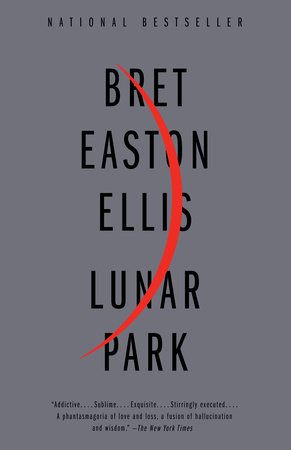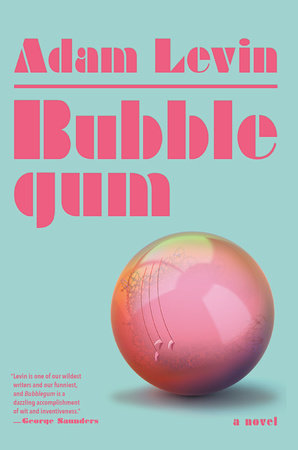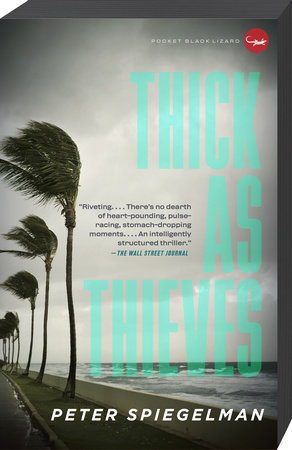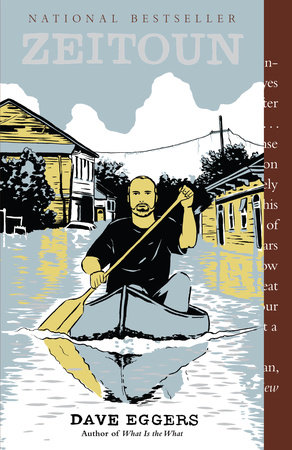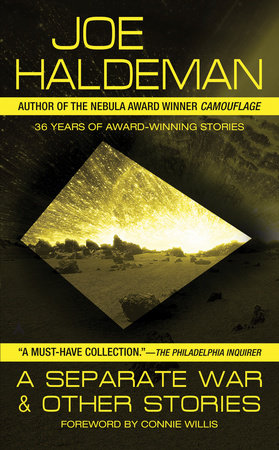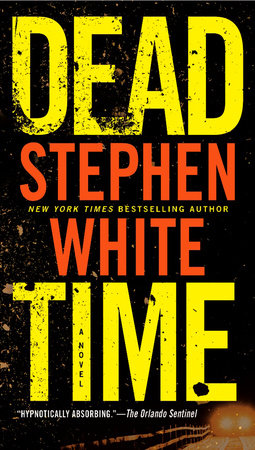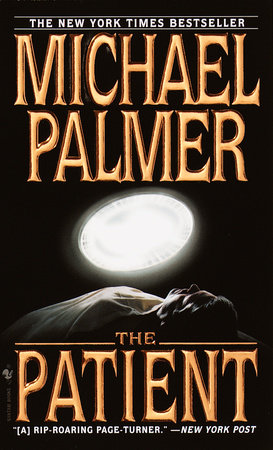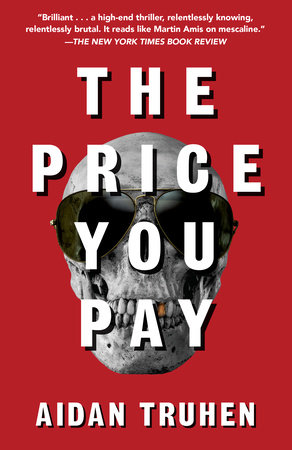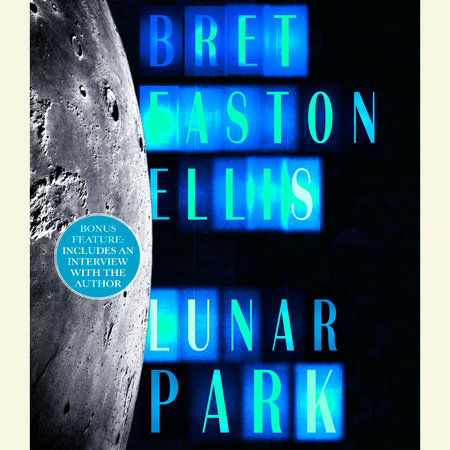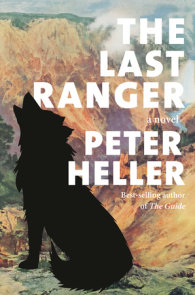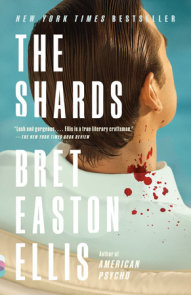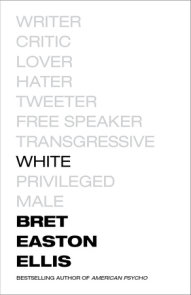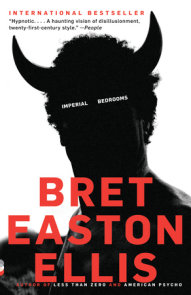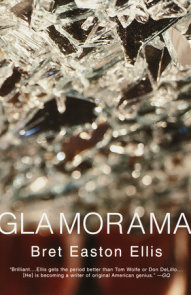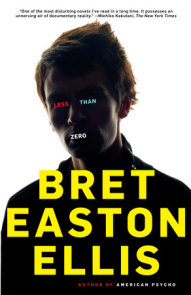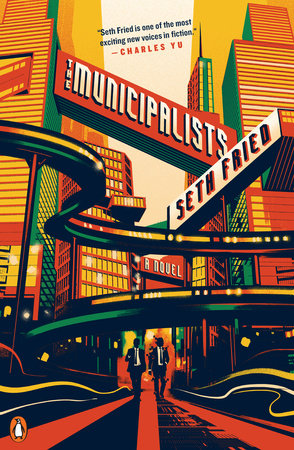Author Q&A
A Conversation with Bret Easton Ellis
Q: We have to start with the most obvious question: the main character in Lunar Park is Bret Easton Ellis, author of Less Than Zero, American Psycho, etc…People are going to question just how fictional the novel is. What is your intention? How much of Lunar Park are we to believe is true?
A: My intention? My intention was to write a book that I thought was interesting, meaning there was no intention at all. The genesis for the book began in 1989 and changed a lot in the ten years before I began writing it. I first wanted to write a book that, I suppose, paid homage to a genre that meant a lot to me growing up (Stephen King was an idol of mine) and which was concerned with a house that was haunted. And it was really that simple. Bret Ellis was not the main character at that point, though the narrator was a writer and he was married and he did have children. And as I thought about the book–and as my own life became more complicated with age and experience–I realized that the book I had been planning was really about what it meant to be a writer. Sure, it was a ghost story and there were monsters and demons and I enjoyed playing with the traditional trappings of the genre, but I was also at the stage where the process of writing began to matter to me as material–and I think this happens with most writers. And that was a big jumping off point and energized me when I was having problems with the outline of the book. I don’t want to demystify the events that take place and I don’t want to have to clarify which things are autobiographical and which things are less so. But it is, by far, the “truest” book I’ve written, in terms of the majority of events that happened. It’s up to each reader to decide how much of Lunar Park actually occurred.
Q: The book seems to suggest your identity as a writer is dependent on press, and that your career might be in need of resuscitation. Do you resent how you’ve been treated in the press, even as some suggest those relationships are something you have actively courted throughout your career? Who, ultimately, determines a writer’s fate? You? Your readers? The press? Your publisher?
A: Well, I’ll grudgingly admit that to some degree your identity as a writer is dependent on press–if people aren’t writing about the book, or are writing about it negatively or positively, I guess that can be influential to readers. But your identity as a writer is really based on the books themselves–by the things you’re interested in writing about. I would hope the books define you as a writer and not anything else. Look at the art not the artist. My career in need of resuscitation? The press always seems to think that “my career”–something I don’t consider writing novels to be, since “career” suggests a plan and something far more within your control than the creation of books–is in need of resuscitation. It makes for a good story, I guess. I’ve only published five novels in twenty years, so if I really felt the need to be constantly out in public I would have forced myself to write more books–duh. And shorter, simpler books. But I’ve never felt that my career was in need of resuscitation. The press has actually always treated me pretty fairly, so I don’t resent them; besides, you can’t really court the press. They write about who they want to write about. Critics, on the other hand, have been less kind, so I’m not sure if I resent them or not, but it’s obvious from how divisive my reviews are that I am not to everyone’s liking, and that’s something you just need to accept. A writer’s fate? That’s awfully dramatic. Who cares? And what does that mean? Their reputation? Not interested. If I had to answer that I guess it’s a combination of things: readers’ responses, the cultural moment, history. Things you can’t control, so why waste time worrying about them?
Q: You have said in the past that you based the character of Patrick Bateman from American Psycho on your father so seeing the new novel dedicated to him made me wonder if your feelings toward him have changed. Moreover, in Lunar Park, Bret has some tough times with his son Robby and vice versa–do you think it’s as difficult to be a “good son” as it is to be the “perfect dad”?
A: My feelings have changed. You get older, you mellow out. My father was a tough case and there was a lot of damage done. But since his death in 1992–and writing about the feelings I have experienced and that are detailed throughout Lunar Park–obviously I’ve thought about him differently than I did, say, when I was writing Glamorama (which I had begun writing while he was still alive), which at the heart of its conspiracy concerns the relationship between a father and a son. To a certain degree I’ve worked out a lot of issues I had with him, but I think a residue of anger and defeat will always exist. A child should never even think about being a “good son.” A parent decides that fate for the child. The parent encourages that. Not the child himself. And the “perfect dad”? I shudder at thinking what that may be.
Q: There are a series of young boys who go missing throughout this novel. Are you writing about all the ways young boys get lost?
A: I really wasn’t thinking of them as “young boys”–I was thinking of them more as sons and children and how ultimately, at some point in their lives, they “leave” their parents. And again, I feel disinclined to demystify what that particular metaphor used throughout Lunar Park means to me.
Q: You tackled drugs in the 80s with Less Than Zero and The Rules of Attraction and in the 90s with American Psycho and The Informers. But in Lunar Park the characters (including kids and dogs) seem to get most of their drugs over the counter. Do you think there’s been a shift in the drug culture of the 21st century?
A: Well, I never thought those books were about drugs and I was never particularly interested in drug culture. I usually channeled what I experienced and saw and wove it into my fiction. I came of age in a generation where drugs were pretty rampant. The books were populated by characters from my generation and so, yes, they did drugs. But I never wrote a book about drug addiction or what it means to be an addict. I wrote about drugs as a social aspect in a certain echelon of society. I might have used a lot of drugs but I was never pro-drug and I certainly wasn’t interested in what taking drugs “meant” except having a good time (unlike, say, the generation that came of age in the 60s, when the drug culture symbolized something far larger). But being older now, and since drugs aren’t part of the fabric of my life anymore, I have a slightly more jaundiced view of them, especially of over-the-counter meds, which have devastated far more people I have known than pot or cocaine ever did. It’s obvious: we’re an overmedicated society. I don’t know how much of that is an aspect in Lunar Park that I thought was important to explore, but it’s definitely part of our world now, and not just the one depicted in the novel.
Q: I never thought I’d see Bret Easton Ellis (the real one or his fictional counter-part) in the sleepy suburbs, complete with McMansion and Golden Retriever. Is this lifestyle in the cards for you or are you really trying to drive home the point that this is fiction?
A: Well, I feel I grew up in the suburbs. That’s all Los Angeles is. And I’ve given suburban life a couple of tries (most notably in the mid-90’s when I spent a good deal of time in Richmond, Virginia), but for the most part the majority of my friends and family live on both coasts and so I divide my time between LA and NY–but not in a McMansion, and I don’t own a Golden Retriever. Plus I never felt in Lunar Park that I was trying to drive home the point that what the reader was experiencing was fiction–quite the opposite, in fact.
Q: Bret is haunted, literally, by his fictional creations. Many people might think that writing is a way of exorcising one’s demons. Are you, in fact, saying that the opposite is true?
A: Exorcising one’s demons is a little dramatic, and I know I used the phrase a lot when I was defending American Psycho. But if exorcising one’s demons means that you’re trying to make sense of your unconscious–that, in effect, you’re mapping out your dream life in your fiction and trying to understand, through writing, what is obsessing you and why, then certainly. I don’t think writing is not about that. But, yeah, there are cases when you write something that has such a huge impact on your life (and the reaction to the publication of American Psycho was one such thing) that it causes more problems–it creates more demons; it messes you up–than you could have ever anticipated, and I think that idea is explored in Lunar Park.
Q: How did you decide which of the characters from your previous books to “reincarnate” in Lunar Park? Do you have favorite characters that you just can’t write off?
A: The only one I can think of is Mitchell Allen, who was a supporting character in The Rules of Attraction. And I’m not quite sure how he ended up on Elsinore Lane or why I put him there. I know I definitely wanted to write about getting older and what the differences are between your youthful days in college and the more sobering responsibilities of adulthood, as well as delineating the cultural shifts between the 80’s and today–most notably the pre-AIDS attitudes among a certain group of men I came of age with. Using characters from book to book is not something I think about, but since I’m always asked this I should make up a better answer, rather than: gee, it just happens. And no, I don’t have favorite characters, though maybe I found Mitchell Allen pretty amusing in The Rules of Attraction and as a private joke that would only mean something to me decided to place him next door to the narrator of Lunar Park.
Q. Lunar Park is, at times, very scary. Okay– very, very scary. Did you set out to write a kind of horror novel?
A: As a kid I was hugely entranced and influenced by comic books and Stephen King–as were most guys my age–and I always wanted to write a book that dealt with the supernatural. So, yeah, I did set out to write a book that was an homage of sorts but as the outline changed and I thought more and more about the book it became less about supernatural events–though they do occur within the novel–and more concerned about the person experiencing them and why they announce themselves to this particular character. Are the events something that would have happened to anyone who moved into 307 Elsinore Lane? Or are they brought on by the narrators own fears and desires? And is Lunar Park an accurate representation of what really happened during those twelve days? That idea–the fact that we’re not quite sure if the narrator is telling us the whole truth–is something I’ve been interested in for years. But with Lunar Park I believe everything the narrator tells us. The sort of illusion vs. reality game-playing that was so evident in Glamorama and American Psycho (and to a lesser degree in The Rules of Attraction) doesn’t interest me as much anymore.
Q: What do you expect the reaction to Lunar Park will be? Can you, as a novelist, have an inkling of what the reception will be to your work?
A: Well, I have inklings and I’m always wrong. I didn’t think anyone outside of LA would read Less Than Zero. I thought The Rules of Attraction would be a huge hit. I assumed people would react to American Psycho as a comedy. I thought I showcased some of my best writing in The Informers. And I was totally caught off-guard by the amount of good reviews and bad reviews Glamorama elicited. I’ve stopped guessing because I’m always wrong. And quite honestly: I don’t care. Writing the book is the main thing. Waiting for a reaction: a waste of time. But, obviously, I hope people respond to the book in a favorable way. I don’t want people to dislike it. But I don’t really mind if they do.
Q: What’s next for you?
A: I’ve been thinking about Less Than Zero a lot since living in LA for the past year, and wondering what happened to those characters.
